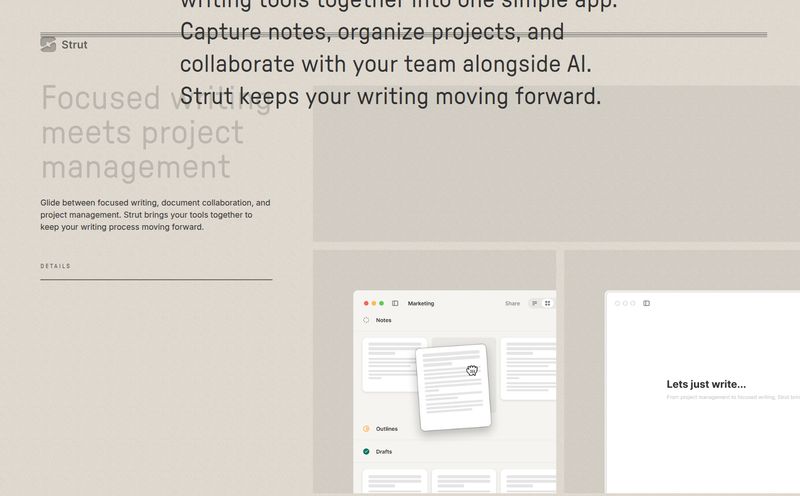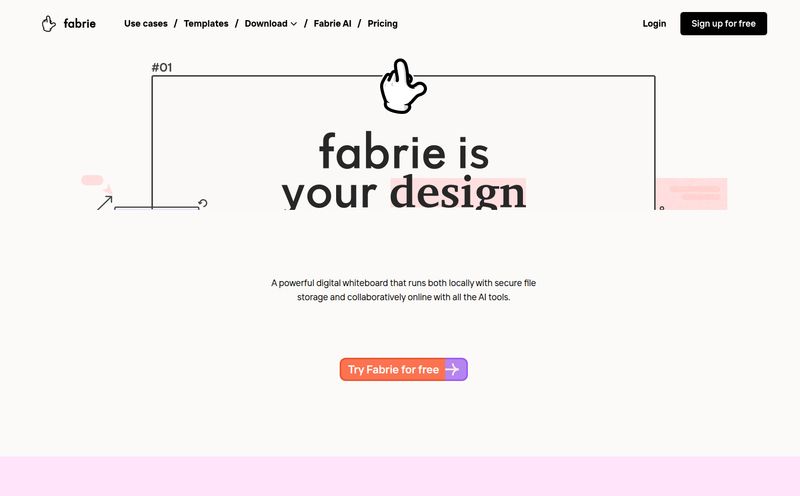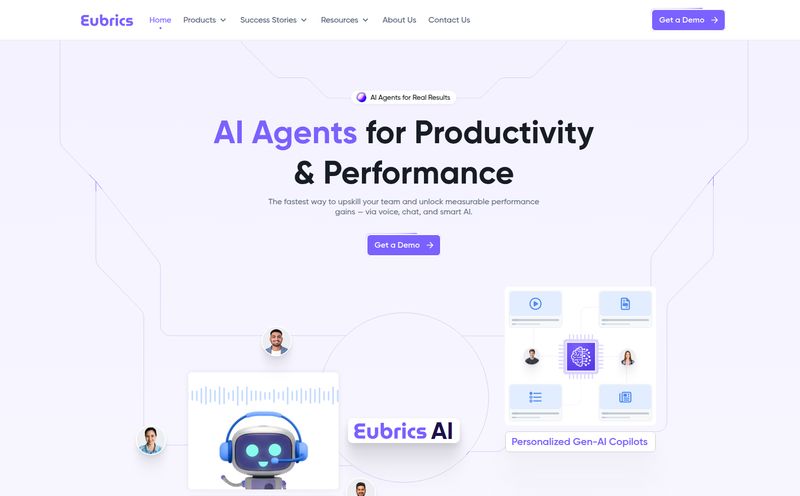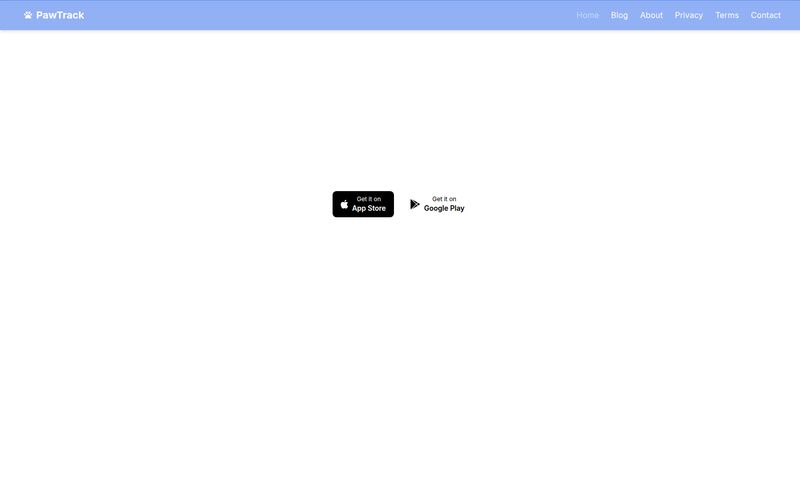How many times have you stared into the abyss of your refrigerator at 6 PM, filled with a random assortment of condiments, some questionable vegetables, and a single, lonely egg, and just thought… nope. The sheer mental energy it takes to answer the eternal question, “What’s for dinner?” can be exhausting. I’ve been there. More times than I can count.
For years, my meal planning strategy was a chaotic mix of wishful thinking, last-minute grocery runs, and the occasional surrender to the siren song of takeout apps. And the food waste? Don't even get me started on the bags of spinach that liquified in my crisper drawer. It was a cycle of guilt, expense, and bland, repetitive meals.
We’ve seen AI creep into everything from writing emails to creating art, so I guess it was only a matter of time before it came for our kitchens. I'd heard whispers about AI meal planners, but most sounded like glorified recipe finders. But then I stumbled upon a tool called FuddleAI, which called itself an “AI Nutritionist & Cook Book Co-Pilot.” Co-pilot? I liked the sound of that. I don't want to be replaced; I just need a little help in the cockpit. So, I decided to let it take the controls for a week. What happened was… pretty surprising.
What on Earth is FuddleAI? (And Why Should You Care?)
Before I get into my own kitchen saga, let's clear up what this thing actually is. FuddleAI isn’t just another app that spits out a generic “chicken and broccoli” recipe. Think of it more like a tiny, incredibly smart nutritionist who lives in your phone. One who also happens to be an expert organizer and is weirdly obsessed with what’s in your pantry.
Its main gig is to give you personalized meal plans and recipes that are actually tailored to you. Not some hypothetical “healthy person,” but you, with your specific goals (lose weight, build muscle), your dietary needs (allergic to nuts, hate cilantro, trying out keto), and the actual food you already own. It’s like having a GPS for your diet, steering you away from bad choices and finding the most efficient route to a good meal using the ingredients you have on hand. For someone who's spent a career tracking trends, this move toward hyper-personalization in health tech is something I've been watching for a while. It’s about time it got practical.

Visit FuddleAI
My Week with an AI Meal-Planning Co-Pilot
Signing up was simple. The real magic started when I began setting up my profile. And not just my profile, but one for my partner, too. The multi-profile feature is a game-changer for households. No more trying to mentally merge a low-carb diet with a “I’ll eat anything” approach. I plugged in our individual preferences, goals, and a few things we were trying to avoid.
Then came the pantry management. Okay, I’ll admit, the initial setup felt a bit like a chore. Going through my cupboards and fridge to log everything I had took a solid 20 minutes. But it was also… illuminating. I had three cans of chickpeas and had no idea. This initial data entry is the foundation for everything, and it’s where you have to be honest. The AI is smart, but it can’t see that forgotten jar of pesto hiding behind the pickles.
Once that was done, the fun began. I asked for a few dinner ideas for the week. The suggestions that came back weren't just random; they were smart. FuddleAI saw I had chicken, those three cans of chickpeas, and some aging bell peppers. It suggested a Mediterranean chicken and chickpea skillet. It knew I had eggs and that wilting spinach and recommended a frittata for the next day's lunch. It was actively trying to save my produce from a tragic end. It felt less like an algorithm and more like a frugal, clever friend peering over my shoulder.
The Features That Genuinely Make a Difference
An app can have a million features, but only a few ever really change your daily routine. Here’s the stuff in FuddleAI that I found myself actually using.
An AI Nutritionist That Doesn't Judge
You know that moment when you're standing in a grocery aisle, wondering if Greek yogurt is really that much better than regular yogurt? The “AskAI” feature is built for that. It’s like having a direct line to a nutritionist without the appointment fee or the potential for judgment. I asked it random stuff all week, from “what’s a good post-workout snack with high protein?” to “is coffee really that bad for me?” The answers were surprisingly nuanced and helpful. The daily check-ins are also a nice touch, a little nudge to keep you mindful of your goals without being annoying.
Taming the Pantry Beast
This, for me, is the killer feature. Food waste is a huge deal, not just for our wallets but for the planet. Seriously, studies from places like the EPA show that the average family throws out hundreds of dollars in food every year. FuddleAI turns this on its head by forcing you to “shop your pantry” first. By suggesting meals based on what’s about to expire, it turns your kitchen into a first-in, first-out system. It’s like playing your own personal season of Chopped, but you always have the secret ingredients to make something great.
From Meal Chaos to a Zen Calendar
The automated meal planner and calendar are pure stress relief. I could generate a plan for the next three days, and boom—breakfast, lunch, and dinner were sorted. It even helps you generate cookbooks of your favorite recipes, which is a neat way to build a personalized collection of go-to meals that you and your family actually love.
Let's Talk Money: The FuddleAI Pricing
Okay, this is usually where the catch is, right? In a world of endless subscriptions, I was bracing myself. But FuddleAI's model is… different. And honestly, incredibly generous.
Is FuddleAI really free? Yes, it has a free plan that’s not just a useless teaser. You get 100 free credits when you sign up, and you can even request 100 more when you run low. Each meal recommendation costs just one credit. So, you get a ton of use out of it before you'd ever have to think about paying. It's a fantastic way to see if it actually works for you without any commitment.
Here’s a quick look at what that free plan gets you:
| Feature | Included in Free Plan |
|---|---|
| Sign-up / Requestable Credits | 100 + 100 |
| Daily AskAI Credits | 20 |
| Meal Suggestions & Automations | Yes (1 credit per meal) |
| Multi-Profile Support | Yes |
| Pantry Storage & Cookbooks | Yes |
The Good, The Bad, and The AI
No tool is perfect, and let's get real about what FuddleAI is and isn't. I've been in the SEO and digital trends space long enough to see a lot of hype. My job is to see through it. So here's my take.
The good is obvious: it saves time, it cuts down on food waste, and the personalization is top-notch. For families with multiple dietary needs, it’s a lifesaver. It’s a genuinely useful tool that solves a common, nagging problem.
But what about the downsides? Some might argue that relying on AI for nutrition is risky. And they're not wrong. FuddleAI is not a doctor or a registered dietitian. It's a co-pilot, remember? If you have serious medical conditions or complex allergies, you should always consult a human professional. This tool is for optimizing wellness and convenience, not for medical treatment.
The other reality is the classic “garbage in, garbage out” principle. The AI is only as good as the data you give it. If you don’t keep your pantry updated or you aren’t honest about your dietary preferences, it’s not going to work as well. It requires a little bit of buy-in from you.
So, Who is FuddleAI Actually For?
After a week of use, I have a pretty clear picture of who would get the most out of this.
- The Busy Professional or Parent: If your mental bandwidth is shot by the end of the day, automating meal decisions is a massive win.
- The Health-Conscious Individual: If you're tired of generic diet plans and want something tailored to your specific fitness and health goals, this is for you.
- The Budget-Minded Household: If you cringe every time you throw away food, the pantry management feature alone could save you a significant amount of money.
Who isn't it for? Probably the passionate, spontaneous cook who loves the creative challenge of an unplanned meal and finds joy in browsing grocery store aisles for inspiration. This is a tool for people who see meal planning as a problem to be solved, not a hobby to be savored.
My Final Verdict
So, did I fire my new AI co-pilot after a week? Absolutely not. I'm keeping it. FuddleAI isn't just another shiny app; its a genuinely practical tool that addresses a real pain point. It’s managed to bring a sense of order and calm to the daily chaos of my kitchen. I'm eating better, wasting less, and saving precious brainpower for other things.
For a tool that you can try so extensively for free, there's really no reason not to give it a shot. It might just be the best kitchen assistant you never knew you needed.
Frequently Asked Questions
- How does FuddleAI personalize meal plans?
- It uses the information you provide in your profile—including your age, weight, activity level, dietary goals (like weight loss or muscle gain), allergies, and food preferences—to generate meal suggestions specifically for you.
- Is FuddleAI completely free to use?
- It has a very generous free plan that gives you 100 credits on sign-up (and 100 more on request) to use for meal suggestions and other features. For many users, this free plan will be more than enough to get started and see consistent value.
- Can I use FuddleAI for my whole family?
- Yes! The multi-profile support is a key feature. You can create separate profiles for each family member, each with their own unique dietary needs and preferences, and the tool can help plan meals that work for everyone.
- Does FuddleAI help with grocery shopping?
- Indirectly, yes. By focusing on using what's in your pantry first, it helps you build a much smarter, more focused grocery list. You'll only buy what you actually need to complete the meals it suggests, reducing impulse buys and waste.
- Can FuddleAI handle complex medical diets?
- While it can handle common dietary needs like gluten-free, keto, or vegan, it is not a medical device. For complex medical conditions, severe allergies, or therapeutic diets, you should always work directly with a human doctor or registered dietitian.



